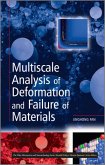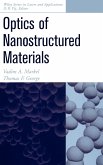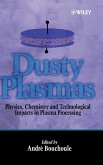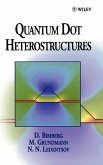Traditional lubricants contain additives containing sulphur and phosphorus, which contribute to environmental pollution and can also have harmful effects on human health. These additives usually need high temperatures to be effective and this tends to pose a severe problem especially when starting machinery when cold.
The technology involved in lubrication by nanoparticles is a rapidly developing scientific area and one that has been watched with interest for the past ten years. Nanolubrication offers a solution to many problems associated with traditional lubricants that contain sulphur and phosphorus; and though for some time the production of nanoparticles was restricted by the technologies available, today synthesis methods have been improved to such a level that it is possible to produce large quantities relatively cheaply and efficiently.
Nanolubricants develops a new concept of lubrication, based on these nanoparticles, and along with the authors' own research it synthesises the information available on the topic of nanolubrication from existing literature and presents it in a concise form.
Describes the many advantages and potential applications of nanotechnology in the tribological field.
Offers a full review of the state-of-the-art as well as much original research that is yet unpublished.
Includes sections on boundary lubrication by colloïdal systems, nanolubricants made of metal dichalcogenides, carbon-based nanolubricants, overbased detergent salts, nanolubricants made of metals and boron-based solid nanolubricants and lubrication additives.
Authored by highly regarded experts in the field with contributions from leading international academics.
Nanolubricants will appeal to postgraduate students, academics and researchers in mechanical engineering, chemical engineering and materials science. It should also be of interest to practising engineers with petroleum companies and mechanical manufacturers.
Hinweis: Dieser Artikel kann nur an eine deutsche Lieferadresse ausgeliefert werden.
The technology involved in lubrication by nanoparticles is a rapidly developing scientific area and one that has been watched with interest for the past ten years. Nanolubrication offers a solution to many problems associated with traditional lubricants that contain sulphur and phosphorus; and though for some time the production of nanoparticles was restricted by the technologies available, today synthesis methods have been improved to such a level that it is possible to produce large quantities relatively cheaply and efficiently.
Nanolubricants develops a new concept of lubrication, based on these nanoparticles, and along with the authors' own research it synthesises the information available on the topic of nanolubrication from existing literature and presents it in a concise form.
Describes the many advantages and potential applications of nanotechnology in the tribological field.
Offers a full review of the state-of-the-art as well as much original research that is yet unpublished.
Includes sections on boundary lubrication by colloïdal systems, nanolubricants made of metal dichalcogenides, carbon-based nanolubricants, overbased detergent salts, nanolubricants made of metals and boron-based solid nanolubricants and lubrication additives.
Authored by highly regarded experts in the field with contributions from leading international academics.
Nanolubricants will appeal to postgraduate students, academics and researchers in mechanical engineering, chemical engineering and materials science. It should also be of interest to practising engineers with petroleum companies and mechanical manufacturers.
Hinweis: Dieser Artikel kann nur an eine deutsche Lieferadresse ausgeliefert werden.








